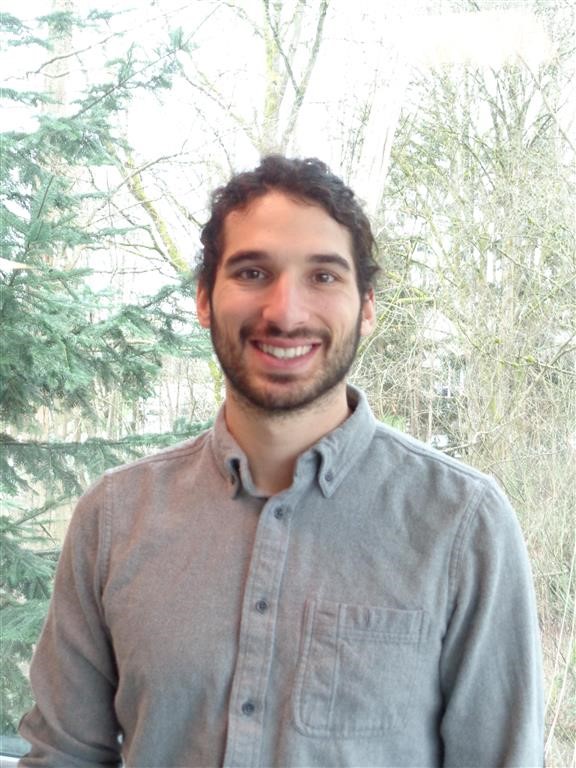
Categories:
 When:
Starts October 25, 2021
When:
Starts October 25, 2021
 Duration:
4 days, 9:00 am - 4:30 pm CDT
Duration:
4 days, 9:00 am - 4:30 pm CDT
 Registrations Closing:
Monday October 11 at 12 pm CDT
Registrations Closing:
Monday October 11 at 12 pm CDT
| Early bird fee | $1,650 |
|
Regular fee (After August 30, 2021) |
$1,750 |
| Continuing Education Units (CEU) | 2.3 |
| CSEP points | 4 + 2 (with certification) |
As a process, recommissioning is often referred to as taking what you already have and making it better! Interest in recommissioning projects has been growing steadily over the years, and it is now recognized as a formidable means to determine which low-cost/no-cost operational improvements may be made to a currently operated building to improve occupant comfort and achieve energy savings. Another facet of recommissioning is it can be conducted as a standalone activity or as part of a renovation/modernisation project.
The four-day Advanced Course on Building Recommissioning (RCx) covers all the stages of the recommissioning process, namely: planning, investigation, implementation, as well as hand-over and monitoring. These stages are presented in detail to allow trainees to develop a coherent understanding of the entire process and reap all the anticipated benefits. The fundamental principles of the use of mechanical systems in buildings are also discussed and best practices for testing and verification are examined to help participants develop in-depth understanding of the investigation stage.
Whether you are an energy consultant or a program/project manager who wants the capability to carry out a recommissioning project internally, you will come away from the RCx course with a thorough understanding of the recommissioning process and how to maintain its benefits throughout the life cycle of a building. Additionally, this course serves to highlight the appropriate energy monitoring interventions to be carried out by third parties.
Click on image to expand
|
At the end of the training, participants can choose to take a competency examination toward earning the RCx recognition. |
During this course, participants will learn:

CIET Virtual Real-Time Classroom training
This training will be offered virtually through Microsoft Teams. Upon enrollment, you will receive the information you will need to enjoy a great training experience.
CIET’s Pan-Canadian Virtual Course Schedule
| Other time zones | ||||||

Michel Parent has a Bachelor's (Laval - 1986) and a Master’s degree (Waterloo – 1988, Solar Energy) in Mechanical Engineering. From 1988 to 1990, he was in charge of the Solar Laboratory at the National Institute of Scientific Research in Varennes. He then joined the Energy Group at the Industrial Research Center of Quebec from 1991 until 1996. Since 1996, M. Parent is a partner in a consulting engineering firm, Technosim, specializing in energy efficiency. Technosim has offices in Quebec and Ontario.
Mr. Parent is specialized in energy efficiency in the commercial, institutional and industrial sectors. He has performed numerous audits across North America, which were used in developing long term energy management plans. Mr. Parent is an Existing Building Recommissioning (EB Cx) Agent and has performed recommissioning for over 5 million square feet of office and retail properties across Canada. He is a certified Existing Building Commissioning Professional (EBCP). Mr. Parent is a lead trainer for the Advanced Recommissioning Course developed for the Canadian Federal Government. Mr. Parent is also a Certified Measurement and Verification Professional (CMVP) and has developed and implemented many M&V plans compliant with the IMPVP standard. He has also worked on M&T projects implementation to ensure continuous improvements to building efficiencies within the context of his EB Cx projects. Mr. Parent has developed training modules for large corporate clients to ensure persistence of savings following EB Cx projects as well as ongoing improvements. Mr. Parent was also retained by OEE to develop and pilot the introductory recommissioning courses. Mr. Parent is also recognized as an expert energy simulator by LEED and has performed many LEED simulations as well as third-party reviews of energy simulations. Mr. Parent has performed over 100 reviews of EE4/eQuest simulations, including many required for LEED submissions. Mr. Parent is a recognized LEED technical reviewer. He is one of the three trainers, recognized by the Office of Energy Efficiency (OEE), in the use of the simulation tool EE4 used for LEED applications. Furthermore, he was contracted by Natural Resources Canada to evaluate the possible adaptations and usefulness of using Portfolio Manager within the Canadian market as a recommissioning tool.
Mr. Parent has been involved with RETScreen since its initial development. He has been in charge of developing the ground source heat pump module for RETScreen as well as being a technical reviewer for the solar (air and water) heating module, the wind energy module and photovoltaic modules of the initial versions of RETScreen. Mr. Parent is also an experienced RETScreen user, having been using the tool since its initial development until today in numerous feasibility analysis studies for renewable energy and energy efficiency projects.

Ari joined Prism’s Energy Team in 2013. His work encompasses conducting energy audits and performing analyses, as well as identifying and implementing savings opportunities. He is involved with the CleanBC Program that focuses on reducing GHG emissions with electrification and FortisBC thermal audits which focus on reducing natural gas consumption.
He has experience with building mechanical systems, optimizing building automation systems, and performing building control upgrades that result in energy savings. Ari has prepared and presented many online training sessions for energy industry representatives including energy managers, energy specialists, facility managers, and building operators. Ari will be an instructor for a retro-commissioning course at the British Columbia Institute of Technology starting March 2020.
The RCx certification does not require any education or experience. On the other hand, if you wish to become an accredited RCx agent by Energy Transition Québec, you will have to meet certain requirements, including having passed the RCx exam administered by CIET.
Any organization wishing to carry out a RCx project and wishing to obtain a grant from the Quebec Ministry of Energy and Natural Resources must do business only with an agent accredited in overhaul of building mechanical systems. These officers must have completed the Natural Resources Canada advanced building refurbishment course offered by CIET, or the Certified Building Commissioning Professsional (CBCP).
Gaz Métro requires that the project be carried out by an agent accredited in the development of mechanical systems for buildings by the MERN, in particular having obtained RCx certification, as part of its program for the rehabilitation of mechanical systems in buildings.
For more information on the Rcx Agent Certification process, please visit the Remise au point des sytèmes mécaniques de bâtiments page at Transition énergétique Québec.
Click here, to see our course postponement and cancellation policy
Send us an email and we will respond as soon as possible.

This is to inform you that the course date is too close to be able to ship hard copies of the material to you on time. If you are willing to use the material in secured PDF, receive the material later (likely after the course) and pay upon registration, please click OK to continue the registration process. Please note that the shipping process will start only when the course fees are paid in full and delays are to be expected. Many thanks!